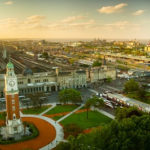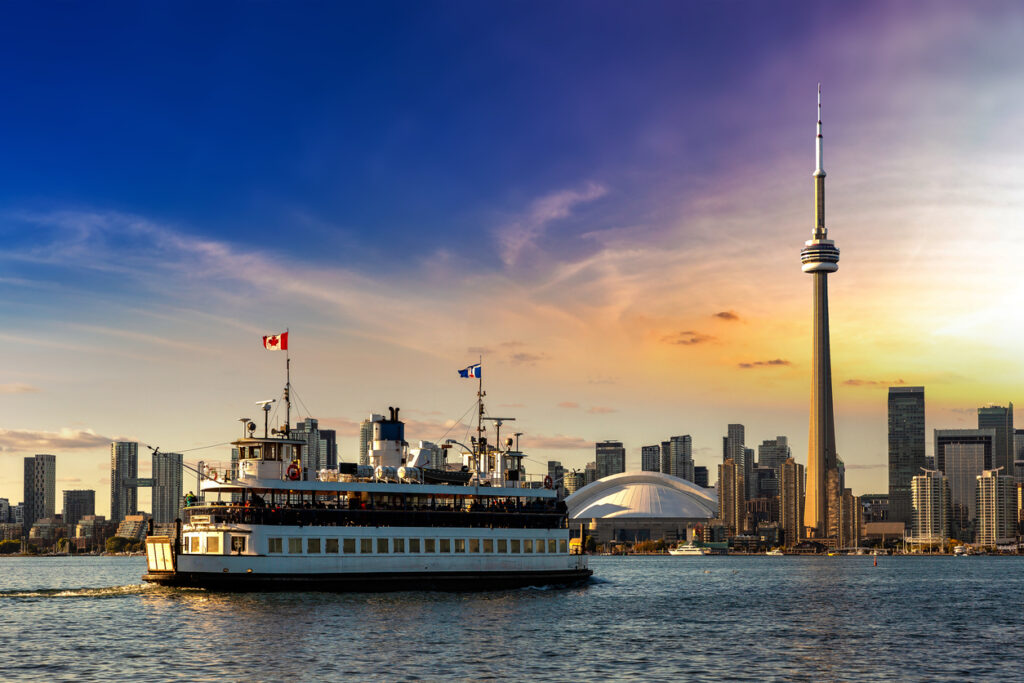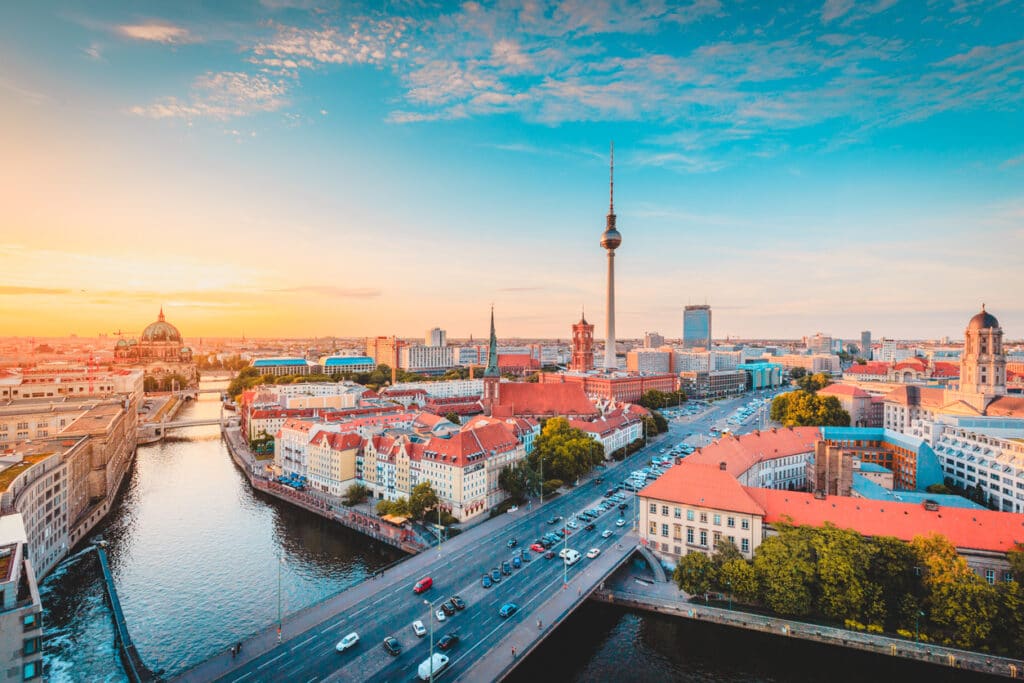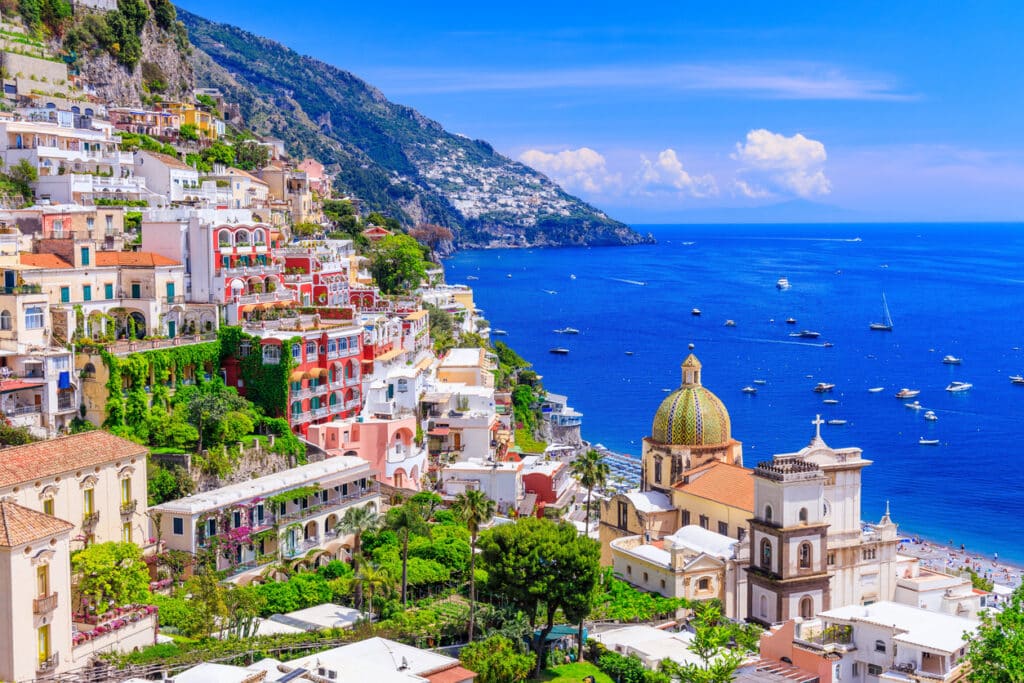Imagine this: delicious food to beautiful landscapes, world-renowned wine, tango dancing, and trendy cities. Who wouldn’t want to visit Argentina? And you can do more than visit — the affordable cost of living, high-speed internet connections, and the fact that it’s one of the safest countries in Latin America also make Argentina a great place to live.
If you’re wondering where to get started on your move-to-Argentina initiative, a good place to start is by researching the digital nomad visa. Supporting global mobility is near and dear to the Bright!Tax team’s heart – in fact, many of our team members are based (or have been based) in Argentina!
The following article will help you understand: who qualifies for Argentina’s digital nomad visa, what does the process involve, and how do you apply for one? We’ll go over all of that and more below.
Snapshot of expat life in Argentina
- Population: 45.81 million
- Capital city: Buenos Aires
- Currency: Argentine Peso
- Official language(s): Spanish
- Approximate number of American expats: 60,000
- School-year calendar: Late February to mid-December
- Best time to move abroad: October to December, or April to June
Work remotely while living as a digital nomad in Argentina
Tourism has long been a critical industry in Argentina — but when the COVID-19 pandemic came along, it plummeted. Between 2019 and 2021, tourism dropped about 90%.1 As COVID-19 conditions improved and restrictions lifted, however, global travel began to slowly but steadily tick back up, including among one relatively new group: workers who now had the freedom to do their job remotely.
The prospect of bringing in remote workers who could stimulate local economies over an extended period of time without adding competition to the job markets was attractive to many different governments, some of whom began to offer digital nomad visas to woo them — including Argentina, which officially launched theirs in May 2022.2
How to become a digital nomad in Argentina
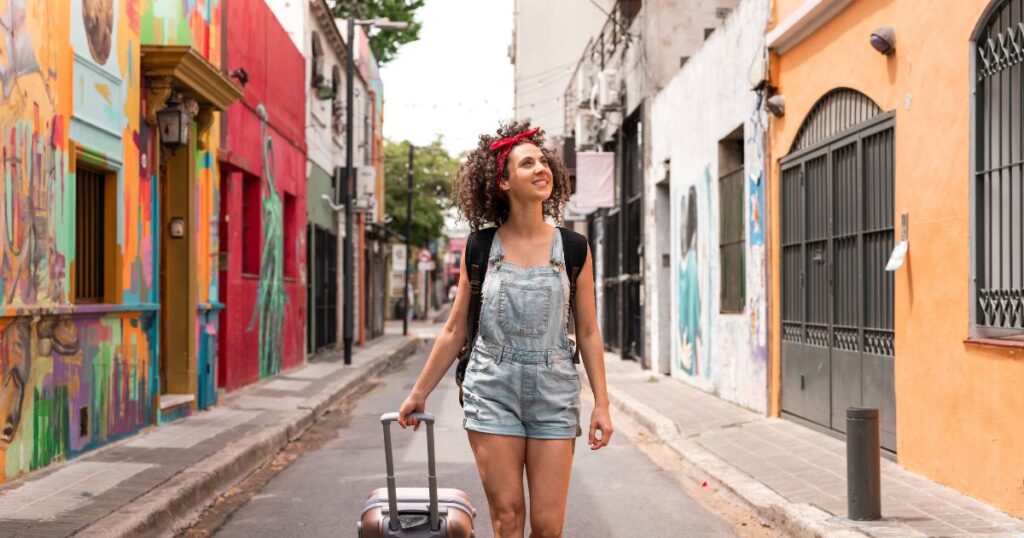
Application eligibility
To apply for the digital nomad visa in Argentina, you must work remotely for a company or client(s) based outside of Argentina.
Visa requirements & duration
To apply for Argentina’s digital nomad visa, applicants must have the following documents:
- A valid passport that will last for at least six months past the end of the visa period
- A CV detailing your work history and qualifications
- An application note explaining why you’re applying for the visa and how you will support yourself
- Proof of employment, such as an offer letter or work contract
- A picture of your face on a white background in JPG format
Frustratingly, Argentina hasn’t given many specific requirements besides those above — but some additional things that may bolster your application include:
- Proof of income, such as bank statements or pay stubs — no formal income requirements have been announced, but some sources recommend around $2,500 USD per month
- Proof of accommodation, such as Airbnb/hotel bookings or a rental contract
- A clean criminal background check
- Private health insurance coverage (such as from SafetyWing)
Once granted, the visa lasts for 180 days, after which it can be extended another 180 days.
Expats in Argentina – best places to live
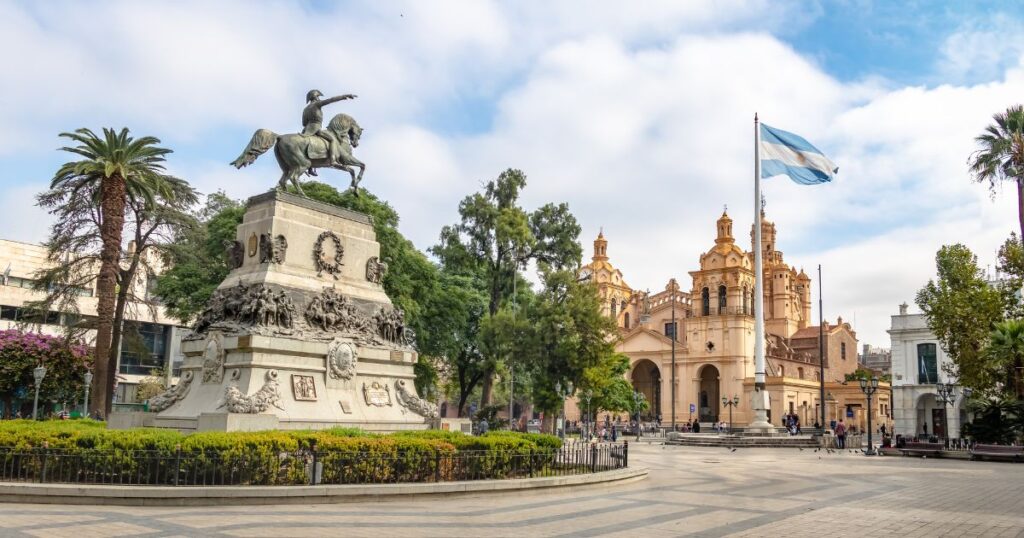
At over a million square miles — roughly a third of the size of the US — Argentina is the eighth-largest country in the world. In such a large country, it might seem difficult to find the right place to move — but these three locations stand out as great hubs for expats and digital nomads.
Buenos Aires
Between its gorgeous European-style architecture, rich history and culture, and excellent cuisine, Argentina’s capital city is often referred to as the Paris of South America. The city’s a great fit not just for urbanites, but also creatives, history buffs, foodies, and even nature lovers, thanks to its sprawling green parks and tree-lined avenues.
Note: Costs associated with living in Buenos Aires and Cordoba are sourced from Numbeo and available as a reference at the end of this article.3
Living in Buenos Aires – how much does it cost?
The average monthly expenses (excluding rent) for a single person in Buenos Aires are about $438 USD, or $1,548 USD for a family of four.
Rent in the city center, meanwhile, comes out to an average of:
- 1 BR: $330 USD
- 3 BR: $665 USD
Cordoba
Cordoba, the second-largest city in Argentina, is home to the prestigious National University of Cordoba. The city is known for its colonial architecture, arts and culture, vibrant nightlife, and gorgeous nearby natural landscapes.
Living in Cordoba – how much does it cost?
The average monthly expenses (excluding rent) for a single person in Córdoba are about $461 USD, or $1,627 USD for a family of four.
Rent in the city center, meanwhile, comes out to an average of:
- 1 BR: $215 USD
- 3 BR: $368 USD
Mendoza
Mendoza is a mid-sized city in Argentina and the capital of the Mendoza province. The city itself is known for its great dining, spas, and sunny weather — but the province overall is renowned for its world-famous Malbec wine.
Living in Mendoza- how much does it cost?
According to LivingCost.org4, the average monthly expenses (excluding rent) for a single person in Mendoza are about $316 USD, or $908 USD for a family of four.
And according to Numbeo5, rent in the city center comes out to an average of:
- 1 BR: $121 USD
- 3 BR: $251 USD
Digital nomad life in Argentina
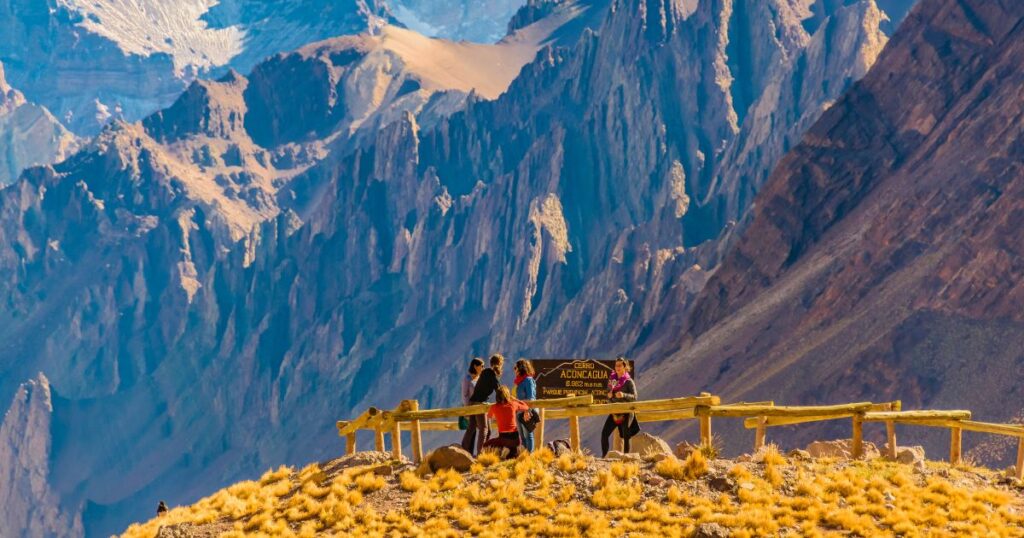
Top 5 best things to do in Argentina
Argentina is a country that offers endless adventures, but some of the highlights include:
- Explore the historic Recoleta neighborhood in Buenos Aires, full of colonial architecture, trendy cafés, and museums
- Go to an authentic parilla (Argentinean steakhouse) and load up on tender, flavorful asado (grilled meats)
- Take in the breathtaking views of the Iguazú Falls waterfall system
- Hike through Los Glaciares National Park
- Taste Malbecs, Syrahs, Tempranillos, and other types of wine at a Mendoza vineyard
Expats in Argentina – how to find your people
It’s normal to feel unsure and even a little lonely when you move to a new country. Fortunately, Argentina is bursting with opportunities to get out and meet new people — you’ll be making new friends in no time. A few ideas to get you started:
- Work or move into a co-living space
- Stay in a social hostel
- Take classes (e.g. cooking, wine-tasting etc.)
- Attend events on Meetup & Couchsurfing
- Join local expat groups on Facebook
- Attend a language exchange
Moving to Argentina
Before making the leap to becoming a digital nomad in Argentina, make sure you cross the following off of your to-do list:
- Gather all of your important documents (passport, visa, etc.)
- Set up a doctor’s appointment to get any vaccines or medications you might need
- Buy tickets for your flights both into and out of the country
- Book accommodations for your arrival
- Research what to bring, create a list, and pack your bags
- Flag your travel plans to your bank so they don’t mark purchases abroad as suspicious
- Set up a forwarding address for your mail, if necessary
- Connect with other digital nomads in Argentina for advice on sites like Reddit or Facebook
Argentina digital nomad visa taxes
Beyond boasting an affordable cost of living, Argentina also has great tax benefits for digital nomads: holders of the digital nomad visa are exempt from paying local taxes on their income, as long as it comes from outside of Argentina.6
VAT in Argentina
One tax that digital nomads living in Argentina will have to pay, however, is the value-added tax — i.e. the sales tax placed on most goods and services — referred to locally as the Impuesto al Valor Agregado, or IVA. The standard IVA rate is 21%, but there are exceptions:
- 27% IVA: Utility services (e.g. gas, water, electricity, etc.)
- 10.5% IVA: Meats and grains, certain public transport, certain medical services, etc.7
Digital nomads in Argentina need to file US taxes
America’s tax system requires all citizens and permanent residents to file a federal tax return (provided that they meet the minimum income reporting threshold) regardless of where in the world they live.
Expat tax provisions for Americans filing US taxes in Argentina
Moving abroad may complicate your taxes and can feel overwhelming to navigate. Below are some of the additional reporting obligations and tax breaks expats should read up on.
Foreign Earned Income Exclusion (FEIE)
The FEIE allows you to exclude a certain amount of foreign-earned income from taxation ($112,000 for tax year 2022, $120,000 for tax year 2023). To be eligible, you need to pass either the Physical Presence Test or Bona Fide Residence Test. If you qualify, you’re also eligible for the Foreign Housing Exclusion/Deduction, which allows you to write off qualifying housing expenses like rent and utilities.
Foreign Tax Credit (FTC)
The Foreign Tax Credit allows you to subtract what you pay in income taxes to a foreign government from what you owe the US government in income taxes. With Argentina’s digital nomad visa, however, you won’t be paying income taxes — so you wouldn’t be able to leverage this unless you eventually secure an Argentinean visa that classifies you as a tax resident.
Foreign Bank Account Report (FBAR)
If you have $10,000 or more in foreign bank accounts at any point in the year, you’ll need to report the contents of those accounts to the Financial Crimes Enforcement Network (FinCEN) via FinCEN Report 114.
Child Tax Credit (CTC)
If you have qualifying dependents living with you in Argentina, you can file the CTC just as you would in the US to get as much as $2,000 in partially-refundable credits.
Foreign Account Tax Compliance Act (FATCA)
As someone who resides abroad by IRS definition, if you have over $200,000 in foreign assets by the last day of the tax year, or over $300,000 in foreign assets at any point during the tax year, FATCA requires you to file Form 8938.
Digital Nomad in Argentina: FAQ
-
Can I work remotely on a tourist visa in Argentina?
Americans actually don’t need a visa to enter Argentina — they can automatically stay up to 90 days for tourism or business purposes. To stay and work beyond that, however, you would need to apply for a visa such as the digital nomad visa.
-
Can you live in Argentina without speaking Spanish?
Only about 6% of Argentina’s population speaks English. (8) While many of them are concentrated in big cities and tourist areas, learning at least some basic Spanish will likely make your day-to-day easier.
-
How can I live permanently in Argentina?
In order to apply for permanent residence, you must have lived in Argentina as a temporary resident for at least two years. (9) Because Argentina’s digital nomad visa only lasts for a maximum of one year, you would need to apply for another visa (e.g. work visa, family visa) before you could apply for permanent residence.
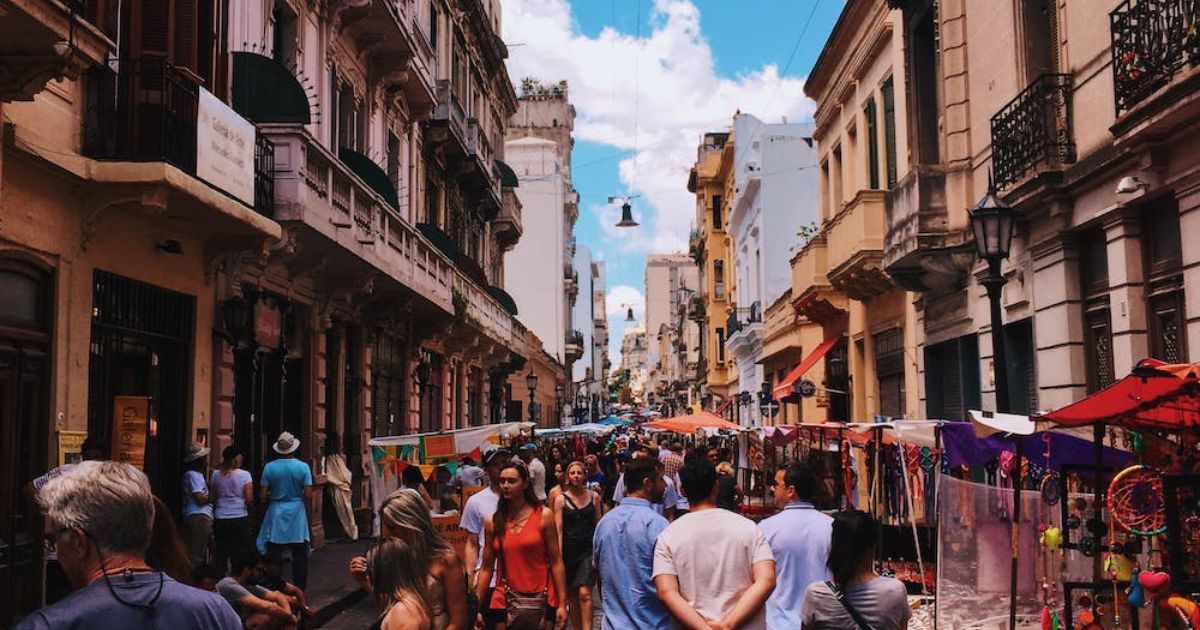
 Connect on LinkedIn
Connect on LinkedIn

